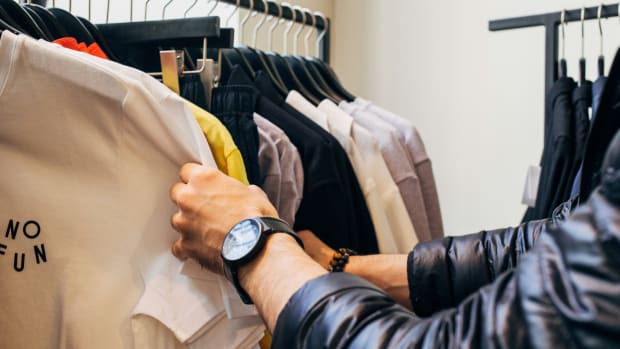
Willemijn van Dolen | Should we become more or less attached to our stuff?
We love our stuff, so we take better care of it, research shows. But why do we get more easily attached to new purchases and more quickly let go of second-hand stuff? Columnist Willemijn van Dolen writes about this tricky paradox.
You know that feeling of joy at a coat you picked out with care, the smartphone you saved for months, or that vintage piece of furniture that fits perfectly in your room? According to several researchers, we really can love stuff.
But did you know that how you get these things determines how easily you part with them again? Recent research shows a fascinating pattern: people are more likely to resell second-hand bought items than new purchases. This ‘reuse and resale cycle’ effect appears to be consistently present across different product categories - from clothes to electronics and from collectibles to bicycles.
The explanation? Our relationship with second-hand items is different; we feel less connected to items that already have a history. Whereas a new product is a blank canvas on which we can project our identity, a second-hand item already bears the invisible fingerprints of previous owners. You make the item your own, but there always remains that sense that you are not the first.
This mechanism could be good news for sustainable consumption. Precisely because we see second-hand items as less ‘our own’, we are more flexible in passing them on, which can benefit the circular economy. The coat you bought second-hand is easier to sell on to the next enthusiast. Researchers’ conclusion: we should not only focus on encouraging second-hand purchases, but also on weakening our emotional attachment to stuff.
In an earlier column, I wrote about appreciative materialism: from a sustainability point of view, we should value our things more, so that we take better care of them and are less likely to throw them away.
And this creates an interesting paradox. On the one hand, it advocates the idea that we should value our things more in order to use them longer and take better care of them. On the other hand, a reduced emotional attachment ensures that it is easier to resell items, promoting the circular economy.
So what is wise? Should we become more or less attached to our stuff?
Perhaps both: love it more without clinging to it. Maximise enjoyment of those new trainers or that new food processor, take good care of them - but also be able to let go of them. When the trainers are gathering dust or the food processor is only serving as a paperweight, maybe it's time for a new owner who will enjoy them as much or more as you do, and then pass them on to someone else even more easily.

